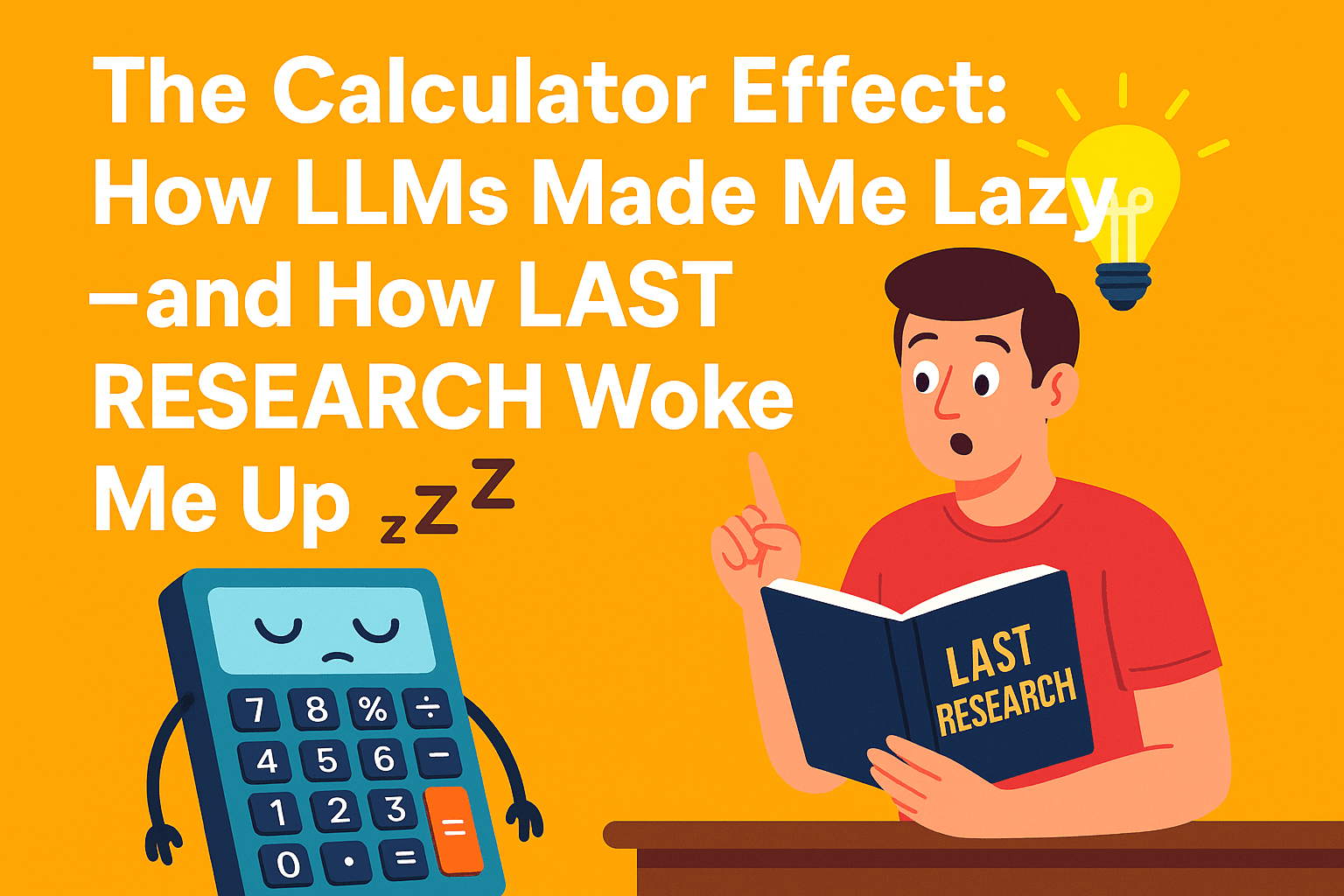
Hey folks,
Do you remember when calculators started to replace our mental arithmetic?
At first, it was magic. Then, over time… it became a crutch.
Recently, I had a similar experience — not with a calculator, but with ChatGPT. Let me explain.
The AI Comfort Trap
While testing antivirus solutions for Linux, I leaned hard on LLMs.
- “What’s better: ClamAV vs Bitdefender vs ESET?”
- “How to deal with real-time scanning on Linux?”
- “Is it safe to install gcc-12 to fix ESET?”
The answers were smooth. Polite. Technically accurate. But…
I missed the most important update in ClamAV in years.
Why?
Because I didn’t check the actual docs.
Cognitive Debt: The Silent Tax
Reading one article, I saw the phrase:
“Cognitive debt is the short-term convenience we pay for with long-term mental decay.”
LLMs are amazing. But if you let them think for you all the time — they erode your instincts. Your curiosity. Your analytical muscles.
Same as using a calculator for every tiny sum.
Same as Google Maps making you forget your own city.
Same as ChatGPT making you skip the man pages.
How I’m Fighting Back
1. Read the actual docs again.
Even if GPT gives me an answer — I go to the official source and verify it. In the ClamAV case, that saved me. I am also trying to read some last information around theme I am interested with at medium platform and some other tech blogs resources.
2. Think before I prompt.
I ask myself: “Can I solve this in a fast way without AI?” If yes, I try.
3. Do rough work also manually.
Grep logs instead of asking GPT. Read the diff, not just the summary.
4. Make my own notes.
Instead of copy-pasting AI answers, I write my own conclusions in a separate documents. That activates memory.
Final Thought
AI should be a compass, not a driver.
Use it to point the way. But walk the path yourself.
In my case, that path led to an awesome ClamAV setup.
And a bit of humility.
Thanks for reading. If you ever felt “too comfy” with AI — maybe it’s time to check your own map. 😉
